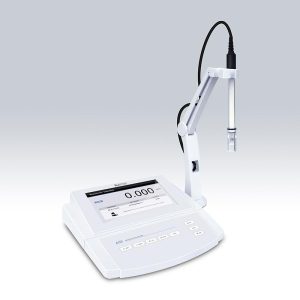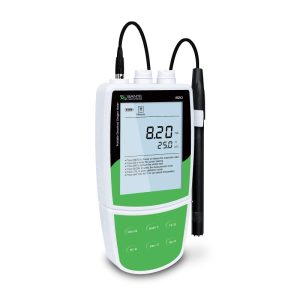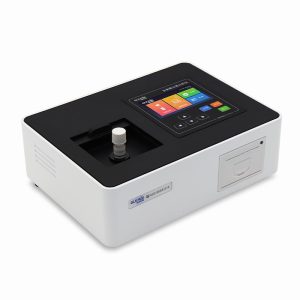Common types and application differences of water quality detectors
Water quality testing instruments are equipment specifically designed to measure and analyze various physical, chemical, and biological indicators in water bodies. They have multi-parameter measurement capabilities and can measure important parameters such as pH, dissolved oxygen, conductivity, turbidity, temperature, ammonia nitrogen, and nitrate in water. Water quality testing instruments can be divided into many types according to different parameters and detection principles. The following are some common water quality testing instruments and their application differences:
PH meter: used to measure the acidity and alkalinity of water. It is widely used in environmental monitoring, drinking water treatment, agriculture and aquaculture.

Common types and application differences of water quality detectors
Conductivity meter: used to measure the conductivity of water, reflecting the ion content and dissolved substance concentration in water. It is often used in water quality monitoring, environmental research, agricultural irrigation and other fields.

Dissolved oxygen meter: used to measure the dissolved oxygen content in water, evaluate the oxygen supply capacity and ecological environment status of water. It is mainly used in water quality monitoring, water treatment, aquaculture and other fields.

Common types and application differences of water quality detectors
Ammonia nitrogen meter: used to measure the content of ammonia nitrogen in water, reflecting the degree of ammonia nitrogen pollution in water. It is often used in environmental monitoring, wastewater treatment, agricultural irrigation and other fields.
Turbidimeter: used to measure the degree of suspended particulate matter or turbidity in water, and evaluate the transparency and purification effect of water. It is widely used in water quality monitoring, drinking water treatment, sewage treatment and other fields.

COD measuring instrument: used to measure the chemical oxygen demand in water, reflecting the content of organic matter in water and the degree of water pollution. It is often used in environmental monitoring, wastewater treatment, industrial production and other fields.

Common types and application differences of water quality detectors
Residual chlorine instrument: used to measure the residual chlorine content in water, evaluate the disinfection effect of water and drinking water safety. It is mainly used in drinking water treatment, swimming pool water treatment and other fields.
These water quality testing instruments have specific functions and importance in different fields and applications, and can help monitor water quality indicators, evaluate the safety and environmental conditions of water bodies, and guide corresponding water treatment and management measures. The specific type of water quality testing instrument chosen depends on the requirements, testing parameters, and target application.
